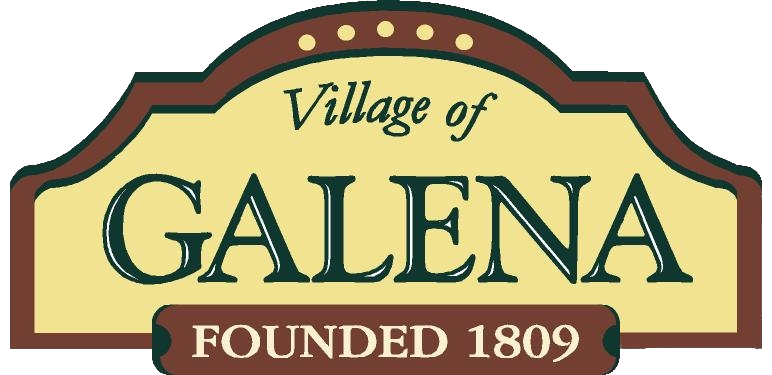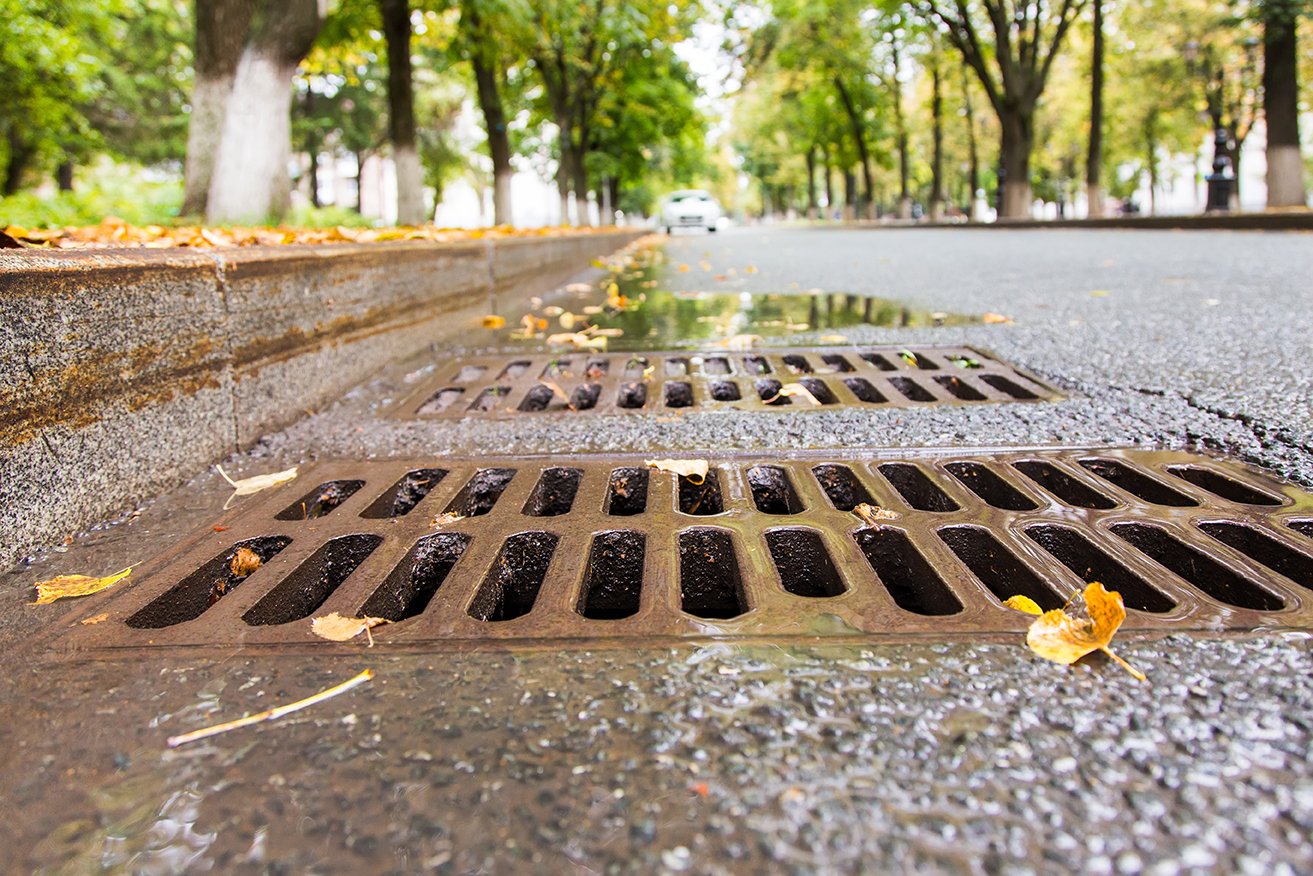
Stormwater Management
Why is stormwater management important to the Village of Galena?
The Village owns and maintains a system of ditches, gutters, inlets, and pipes that are designed to carry stormwater runoff away from streets and buildings. Storm drains located at low points along the sides of streets, take the water into underground pipes that can be several hundred feet long and lead to outlets along streams, creeks, ponds, and lakes.
Unlike sanitary sewer systems, the storm sewer system does not lead to a treatment plant. Storm drains are a completely different system than sanitary sewers.
Stormwater runoff becomes a major problem when it picks up garbage, debris, sediment, chemicals, automotive fluids, fertilizers, leaves, and other pollutants from parking lots, yards, village streets, house roofs, etc. This type of pollution is called non-point source (NPS) pollution because it is not from anyone specific source.
There are multiple reasons why everyone should be concerned about stormwater, including its effects on public health and environmental quality, and economic impacts:
Stormwater falling on Galena’s geographical area, drains toward Little Walnut and Big Walnut Creeks and ultimately Hoover Reservoir, which is the daily water supply for some 500,000 people. Aside from the human health impacts, the cost to each citizen for drinking water purification increases as water quality decreases.
Galena is well known for its parks, trails and open spaces, which also include our many waterways. Aside from the practical aspect of people wanting to keep these areas attractive places to be around, dirty stormwater runoff can harm fish and other wildlife living in and around the creeks and lakes.
Village of Galena is required by state and federal laws to actively do its part to reduce stormwater pollution in order to protect and improve waterways. The penalties for non-compliance would be costly.
Six minimum control measures:
The Village is required to submit an annual report to Ohio EPA that demonstrates how the Village addressed each of these minimum control measures.
-
Public education and outreach
Distributing educational materials and performing outreach to inform citizens about the impacts polluted stormwater runoff can have on water quality and measures they can take to reduce pollutants in stormwater runoff.
-
Illicit discharge detection and elimination
Developing and implementing a plan to detect and eliminate illicit (illegal) discharges to the storm sewer system such as improper disposal of waste.
-
Post-construction site runoff control
Managing stormwater runoff and pollution from land development and redevelopment areas after the construction process is completed, concerning permanent facilities such as designed retention basins, ponds and swales.
-
Public participation and involvement
Providing opportunities for citizens to participate in activities associated with stormwater pollution reduction and prevention.
-
Construction site runoff control
Managing sediment, pollution and excessive runoff from construction sites.
-
Pollution prevention and good housekeeping
Managing municipal government operations to reduce pollution.
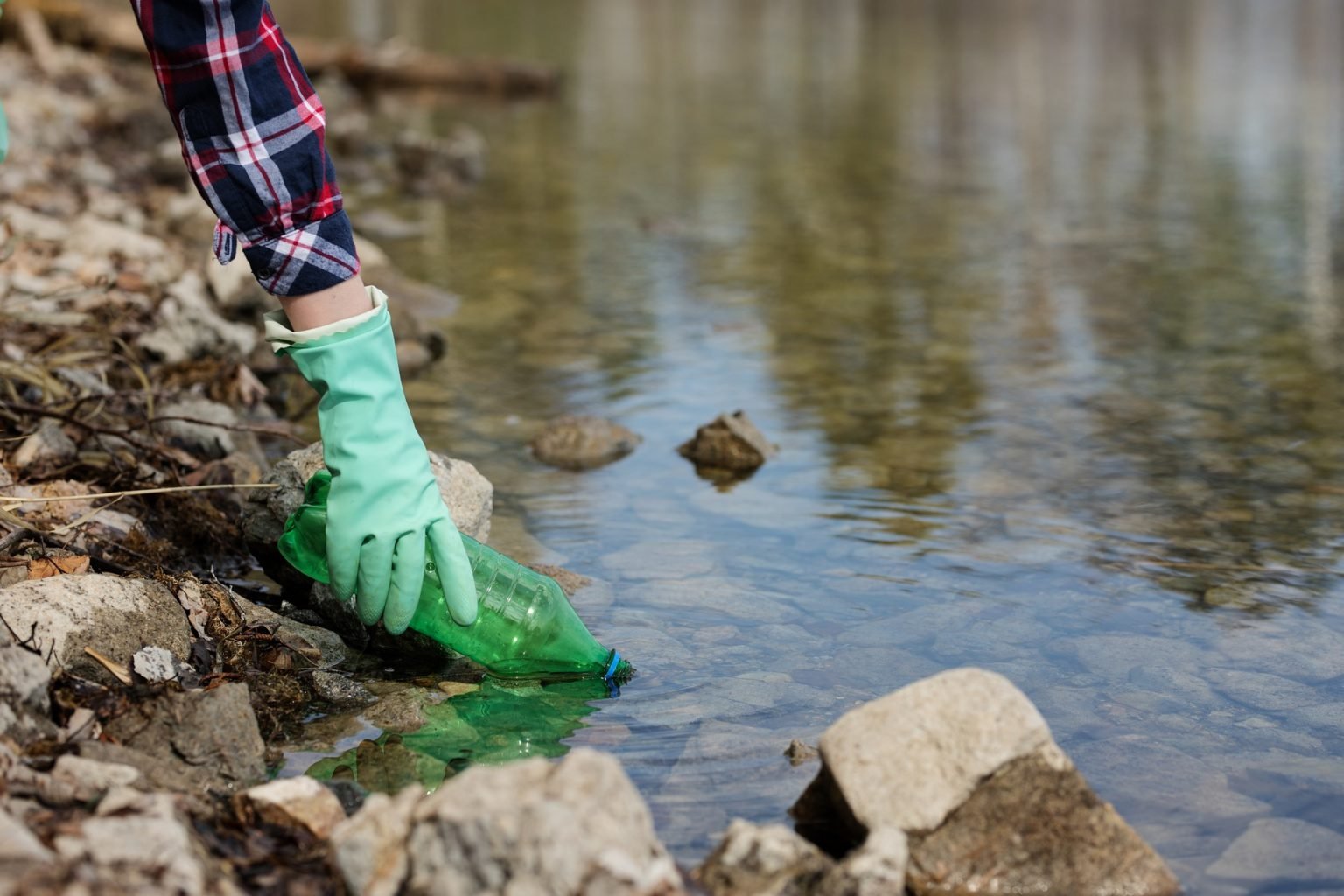
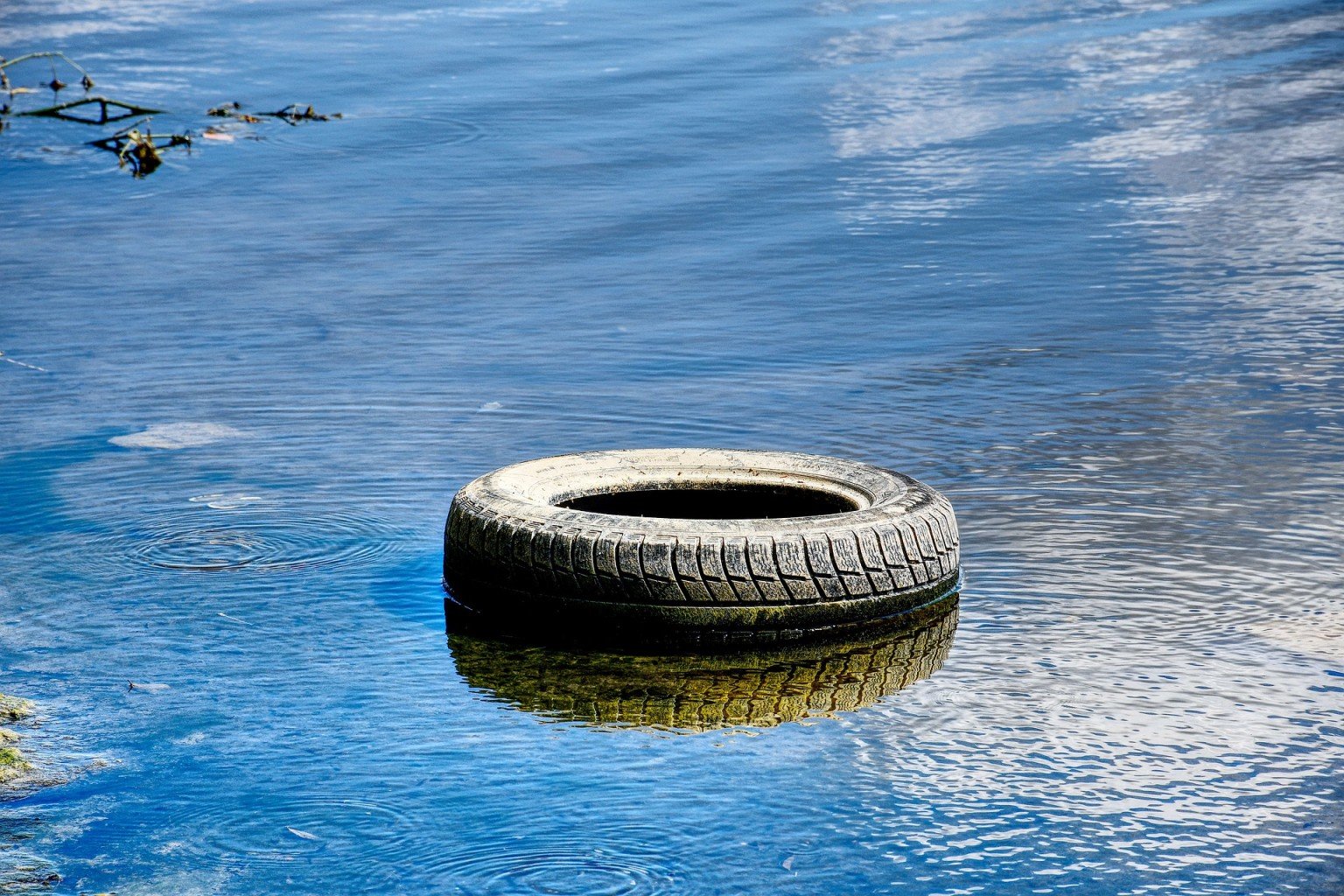
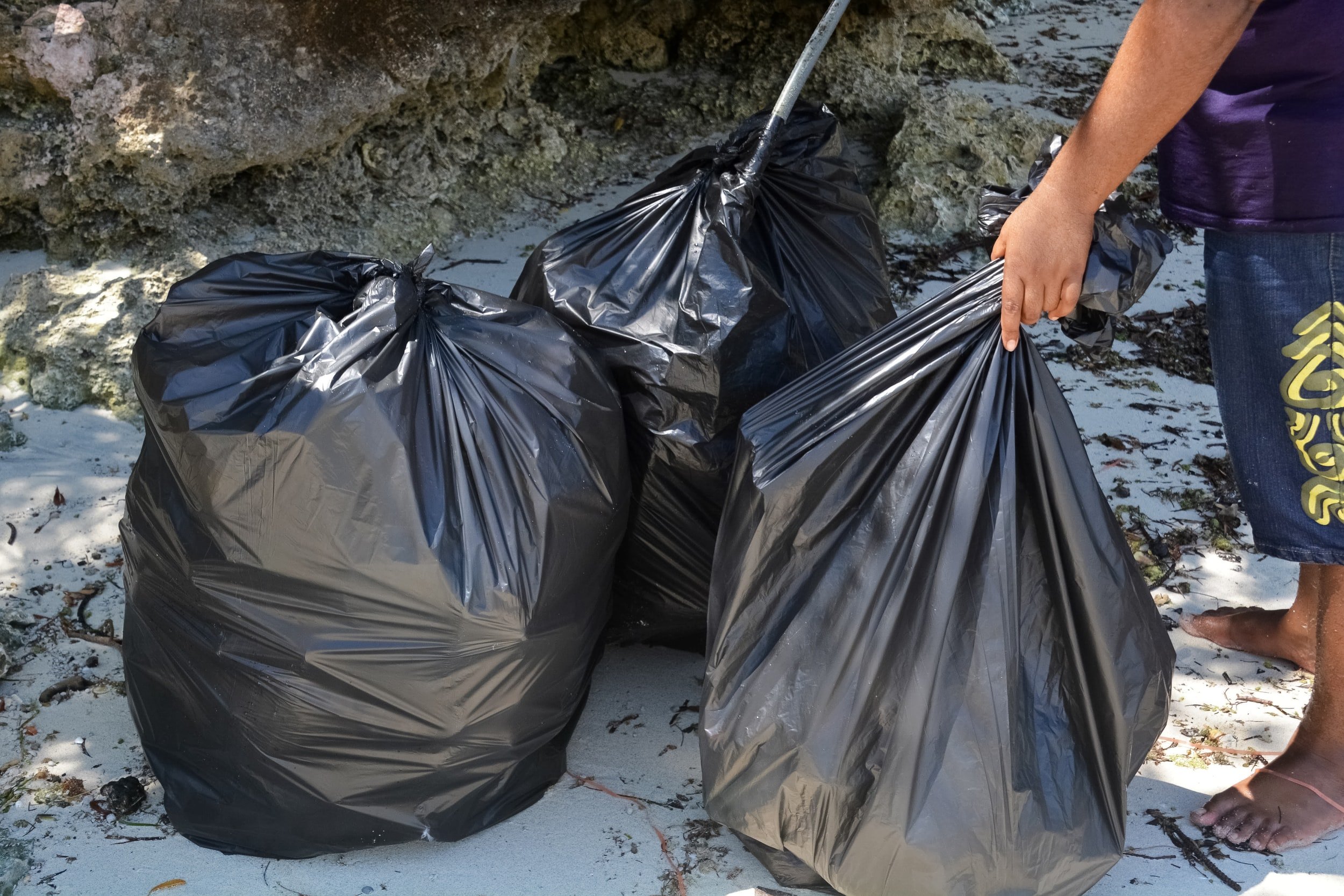
Here are some things that you can do to help prevent stormwater pollution:
Pick up litter.
Use environmentally friendly materials and follow application instructions carefully for fertilizers, herbicides and pesticides to maximize outcome with the least impact. Follow all label instructions. The label is the law.
Never put anything into a stormwater drain other than stormwater. A single gallon of oil can pollute 100,000 gallons of water. Contact the Delaware-Knox-Marion-Morrow Solid Waste District for a schedule of planned collection events for household chemicals, paints, fertilizer, electronics, and tires.
Use rain barrels for irrigation. They can help minimize flow downstream and help to minimize your water bill.
Use car washes or environmentally friendly cleaners to limit soap from reaching our waterways.
Do not disturb or mow areas along stream banks. This will help limit erosion and filter pollutants prior to entering the stream.
Clean up after your pets. Fecal matter can be very damaging to ecosystems.
Participate in the spring and fall litter pickups around Hoover Reservoir.
Utilize the recycling program that is included under the village’s residential solid waste contract with Rumpke.
Common household contributions to stormwater pollution:
Vehicle drips and leaks (oil, grease, gasoline, antifreeze, brake fluid) particularly on paved areas
Incorrect disposal of paints, cleaning fluids, and other chemical agents
Overuse of lawn fertilizers, pesticides, and herbicides
Pet and food wastes – particularly on paved areas – allows harmful bacteria and viruses into natural creeks
What is the Village doing to protect the waterways from changes that occur with land development?
The Village has developed a stormwater code that sets the standards for stormwater management and to maintain uniformity in the design standards for land development projects. Such projects undergo engineering and technical compliance reviews throughout the project development process, from design through construction. These plans and designs are scrutinized by the Planning and Zoning Commission during the application process.
Only rain belongs in the drain
Report illegal storm drain dumping and stream pollution.
To report an illegal discharge, call the Galena village hall at (740) 965-2484, or use the online reporting form.
What is an illegal discharge?
Storm drains are designed to handle stormwater runoff only and do not provide treatment to water or other substances that enter the system. The Village of Galena is responsible for managing its storm drain system within the municipality. Public education and participation in reporting sightings or evidence of suspicious substances being dumped down storm drains or directly into our local creeks is an important part in preventing water pollution. Odors, unnatural colors or dead fish are signs that something harmful has entered the water.
As part of our Illicit Discharge Detection and Elimination (IDDE) program, citizens who suspect that they have witnessed illegal dumping into a storm drain or water pollution should report it to the Village offices either by phone or email. If you are not sure whether an illegal discharge has occurred, please report it and we will determine whether any further enforcement action is required.
What are Some Examples of Illicit Discharges?
Proper disposal of common household chemicals and products is important to prevent pollution of our local waterways. Under no circumstances should any of the following (or other chemicals) be disposed of by pouring or placing in a storm drain or directly into a local waterway:
“Gray water,” such as laundry, shower, or kitchen waste water.
Paints, solvents, cleaning products and other toxic household substances.
Gasoline, motor oil, brake fluid, engine coolant (antifreeze) and other toxic automotive products.
Septic tank pump-out and other types of human or animal waste.
Fertilizers, pesticides, herbicides and other agricultural products.
Leaves, grass clippings or yard waste of any kind.
What are Some Visible Effects of an Illicit Discharge?
An unnatural color in the water, such as red, white or brown.
An oil sheen floating on the water.
Floatables such as toilet paper, or suds.
A foul or unnatural odor.
Dead fish or other aquatic life.
FAQs
-
The storm drainage system helps prevent roads and land from being innundated by diverting rainwater into nearby waterways. During rainstorms, water runs off of buildings, roads, and other hard surfaces, picking up trash, impurities and pollutants along the way. The water and pollutants flow into storm drains and through underground pipes directly into the nearest stream, pond or water reservoir.
-
The drains in your house are part of a different system, the wastewater system. Dirty water from inside your home flows into underground pipes that are connected to the Village’s wastewater treatment plant. The water from your home is cleaned before it is released into Big Walnut Creek.
-
Please see Ohio EPA’s website about the MS4 Program.
-
The Delaware-Knox-Marion-Morrow Solid Waste District (DKMM) conducts events throughout the year for disposing of materials that should not be thrown away in the regular weekly trash. These include materials like old paint, insecticides, herbicides, pesticides, and electronics such as televisions and computers. Check the DKKM website for dates and locations of these collection events and for the list of acceptable materials, or call DKKM at 740-368-1700.
-
Most retailers that sell motor oil, including NAPA, Advance Auto, AutoZone, O’Reilly Auto and Walmart Tire & Lube Express, will accept motor oil for recycling. Many automotive repair shops will also accept oil, provided it is clean. Used motor oil can’t be recycled if it’s mixed with other liquids like antifreeze or brake fluid. Keep your used motor oil in a clean, leakproof container like a plastic jug or bottle, and make sure the container is clearly labeled identifying the contents.
-
The Delaware-Knox-Marion-Morrow Solid Waste District (DKMM) conducts events throughout the year for disposing materials that should not be thrown away in the regular weekly trash. These include materials like old paint, insecticides, herbicides, pesticides, electronics such as televisions and computers. Check the DKKM website for dates and locations of these collection events and for the list of acceptable materials, or call DKKM at 740-368-1700.call DKKM at 740-368-1700.
-
Electronics contain heavy metals which can contaminate drinking water if not handled properly. Electronics should be dismantled by a professional to be recycled into new electronic equipment. They should not be thrown into the regular trash.
The Delaware-Knox-Marion-Morrow Solid Waste District website contains a list of facilities that accept electronics. Or, call DKKM at 740-368-1700.
Also, Best Buy has been accepting electronics, appliances and fitness equipment through their Best Buy recycling program.
-
The wrong things to do are letting them sit on your property, dumping them along a road, or putting them in someone’s dumpster. The best way is to take them to a business that sells and installs tires, or at a licensed disposal facility, where they will likely charge a disposal fee to cover their costs. Disposal of tires is regulated by the Ohio EPA. For further information, see Ohio EPA’s Scrap Tire Cleanup Program.
-
If you observe or suspect some sort of pollution has occurred – even if you’re not sure – should be reported to the Galena village administrative office. You may call 740-965-2484 or use the convenient online reporting form. Pollution can be any type of trash or harmful chemicals that are dangerous to people and the environment such as:
Dumping used oil in storm drains
Throwing trash or debris along a roadside
Putting leaves or grass clipping in street
Piping any wastewater directly to the stream
Disposing of trash in storm drains or waterways
